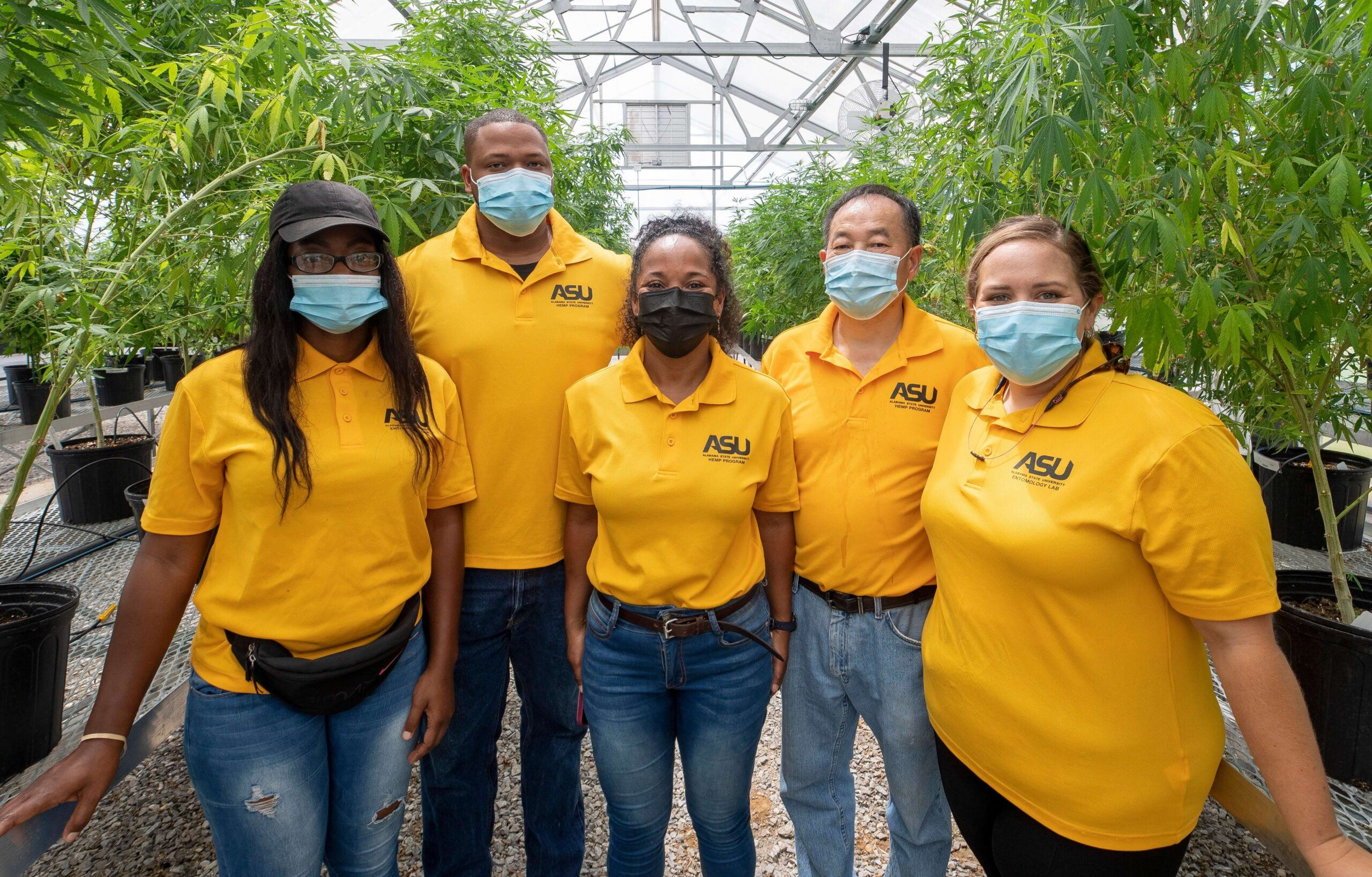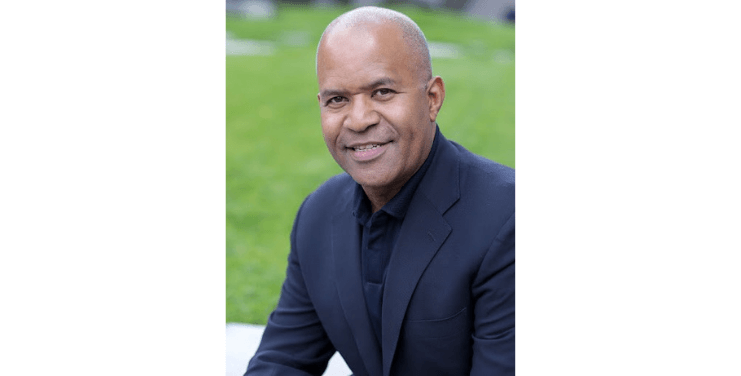KEY INSIGHTS
- Backed by an initial $50 million from Apple and Southern Company, the Propel Center aims to prepare HBCU students for the innovation economy.
- Propel plans to break ground on a 50,000 square-foot campus in Atlanta before this summer.
- It has already given out $5 million in grants for projects at HBCUs in social justice, agri-tech and the arts.
The Propel Center, an initiative backed by Apple to train HBCU students for the innovation economy, has announced a new leader for the program one year after launching: social entrepreneur Gene Wade.
“What made me do this was the opportunity to have an impact,” Wade told The Plug about his first foray leading a non-profit. He officially started as CEO in September 2021. “This is a unique opportunity to accelerate building out a pipeline of students from HBCUs to innovation economy opportunity startups and companies that are doing the bleeding edge work creating the future.”
The Propel Center is supported in part by Apple’s Racial Equity and Justice Initiative, a $100 million commitment that came two weeks after the murder of George Floyd. Apple has dedicated at least $25 million to Propel.
Its goals are lofty: to provide students from all 102 HBCUs access to training, internships and opportunities in entertainment, social justice, entrepreneurship, technology and agri-tech. Yet the premise is simple: there is talent everywhere, all that is missing is preparation and exposure.
For Wade, who grew up in public housing in Boston, going to Morehouse College as a young man prepared him for his future.
“It really was a game-changer for me,” Wade said.
Now, Propel is poised to change the landscape of what types of careers and futures HBCU students are exposed to. Their first offering is a virtual course that will launch in the fall and be available to all students at participating HBCUs, some of which include Wiley College, Prairie View A & M University, Bishop State Community College, Miles College, Bethune-Cookman University, Benedict College, Simmons College of Kentucky and Edward Waters University. The course modules will be focused on industry professionals, their background and work. Wade said it will break down how the professional got from school to the job they now do and unpack that process.
“What we want to do is shine a light on that and give students an opportunity to understand how the sausage is made, who the people are and how do you get from the classroom to being an acoustic engineer, building the AirPods, how in the world do you do that?” Wade explained.
But Propel isn’t just a virtual venture; it’s meant to be experiential as well. There will be a 50,000 square-foot campus at the Atlanta University Center, which houses Spelman College, Morehouse College, the Morehouse School of Medicine and Clark Atlanta University. They will break ground on the center before summer and a site has already been chosen, Wade said, although he did not specify yet where in the AUC it will be.
Once the physical structure is completed, students who have participated virtually in different projects like case studies, hack-a-thons and pitch competitions will be able to come to Propel free of charge and meet other students and industry professionals.
“If you’re at the MIT Media Lab, this happens every day. You walk down the hall, go to lab and there’s some guy from some company and you’re working on some project. This is happening in elite institutions all the time,” Wade said. “Where it’s not happening is in the HBCU ecosystem. We’re bringing that opportunity to our students.”
In addition to Apple’s $25 million contribution, Southern Company, the electric and gas utilities provider, gave an additional $25 million in seed funding to Propel. Roughly 10 percent of that initial $50 million has been given out as grants over the past year — $2 million to social justice research projects and $3 million to agri-tech and arts ventures at participating HBCUs.
Michelle Samuel-Foo, Director of Specialty Crop Research at Alabama State University, is one of the recipients. She received a 12-month, $200,000 grant from Propel that also includes $100,000-worth of Apple products.
“It’s stellar,” Samuel-Foo told The Plug. “The amount is comparable to a grant that you would get from one of the larger governmental agencies for sure, and I would offer that it’s a large grant compared to some of the state agencies or smaller private sector grants that I’ve gotten in the past.”
ASU’s grant will go towards expanding education and access to its teaching garden, which come springtime will grow tomatoes, herbs, cucumbers, eggplant and okra, and is aimed at improving students’ diets and alleviating food insecurity on campus.
Nearly half of student loan borrowers at HBCUs — 44 percent — have occasionally skipped meals because they didn’t have enough money for food, according to a November study by the United Negro College Fund, Center for Responsible Lending and UNC-Chapel Hill. Among Black student borrowers at predominately white institutions, just 29 percent reported skipping meals.
Samuel-Foo and her colleagues will be able to contract a registered dietitian and nutritionist to help them create an app that will allow students to scan a QR code in the garden to get more information on the crop and how they can incorporate it into their diet. They will also create an alert system for students to know when there is extra food available after a campus event, when food is delivered to the food pantry and when they can harvest directly from the teaching garden.
“I believe in the mission of the [Propel] Center and I’m tremendously excited to see what the future holds,” Samuel-Foo said.

But Propel is not the only center launched this past year aimed at helping prepare HBCU students for future careers.
The Center for Black Entrepreneurship, also housed at Spelman and Morehouse, has raised at least $15 million from Bank of America and Mastercard. The CBE will help students develop their business ideas, learn how to fund the ideas and give them access to a dedicated portion of Black Economic Alliance Foundation’s Entrepreneurs Fund. With the $15 million, the schools will be able to create in-person and online entrepreneurship curricula, recruit faculty and develop programming for students outside of the classroom.
Howard University and PNC also launched the National Center for Entrepreneurship last year. Started from a $16.8 million, five-year grant from the PNC Foundation, the main philanthropic arm of PNC Bank, the Center will also include regional hubs at three other HBCUs, one of which is Clark Atlanta.
Wade said Propel will not duplicate efforts nor compete with the other centers but will partner with them to provide technical expertise.
Propel’s work will also extend to prospective students. It will create a pipeline for high school students that typically would not go to college due to a lack of preparedness to eventually attend an HBCU. In July, Propel will announce two, possibly three, community partners for the program, Wade said. The participating students will have classes in the morning and tutoring sessions in the afternoon, and hopefully after a year, they will then enroll in an HBCU.
“That gives you a year of college at no cost, and lots of support and you get to take our online class and say, ‘Oh, this is why I want to go to college and study math and do x,’” Wade said. “‘This is a reason to do this. I can see myself now, whereas I wasn’t going to go to college. Now I can see myself not just going to an HBCU but actually, as a leader in the innovation economy, because I know how to do it.’”
As Propel enters its second year and gets ready for major launches, Wade is already looking to a future where Propel helps change the landscape of higher education.
“The way I like to describe this is that we’re not going to solve every problem in higher education or even within the HBCU community,” Wade said. “But I think we’re going to be the organization that changes how people think about the possibilities.”
“A lot of innovation in our social fabric starts right with Black college students and alumni and I think this is no different.”








